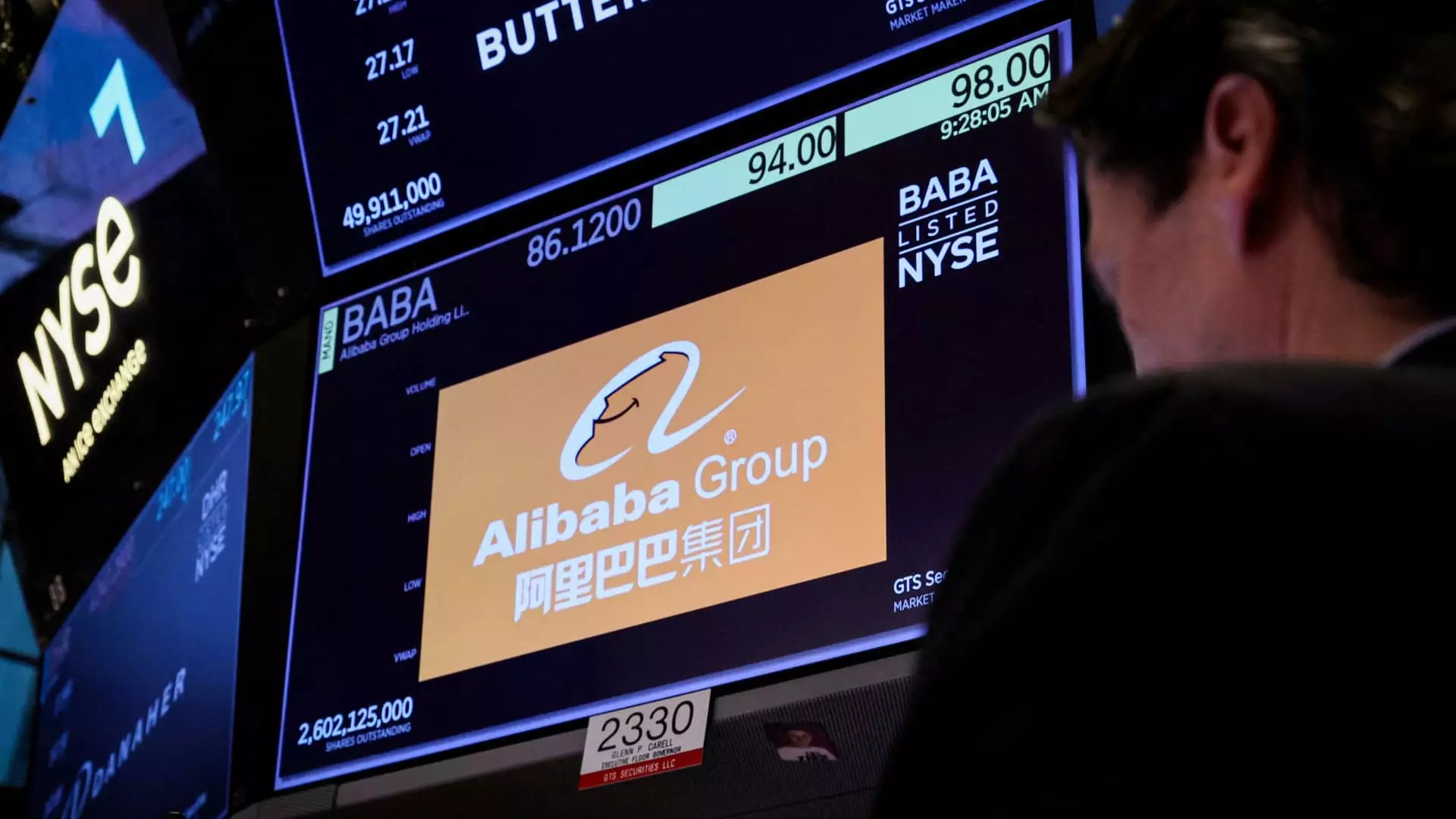The Resurgence of Alibaba: Navigating AI and E-commerce Dynamics

The story of Alibaba’s revival has become a focal point for investors and observers of the Chinese tech landscape. As it positions itself as a key player in the burgeoning field of artificial intelligence (AI), the company’s stock, traded in the U.S., has experienced a remarkable surge of nearly 70% in the early months of 2025. This spike in share value is not merely a sign of investor enthusiasm but reflects deeper trends and strategic pivots within the company as it seeks to reclaim its market dominance amid fierce competition.
A significant driver of Alibaba’s impressive stock performance is its rapidly growing AI-related product revenue. The company recently reported triple-digit growth in this sector for the sixth consecutive quarter, indicating a robust demand for its AI offerings. Notably, Alibaba’s Qwen AI model is emerging as a formidable competitor in the AI landscape, challenging established players such as DeepSeek. The significance of this growth is magnified by a notable partnership that has secured Qwen AI’s integration with iPhones sold within China, a strategic move that could bolster market penetration and brand recognition.
Alibaba’s resurgence can’t be discussed without mentioning its founder, Jack Ma, who has made a public comeback after a period of political withdrawal. His participation in a high-profile meeting with President Xi Jinping alongside other entrepreneurs marks a pivotal moment that may influence investor confidence moving forward. The symbolic nature of this meeting, coupled with the company’s proven capabilities in AI, has rejuvenated interest in Alibaba among institutional investors.
Market analysts are closely monitoring Alibaba’s trajectory, with firms like Jefferies projecting a price target of $156, illustrating an anticipated upside of over 8% from recent trading prices. UBS has acknowledged Alibaba’s strong positioning within its model portfolio, suggesting a strategic shift away from competing platforms like PDD due to Alibaba’s robust AI exposure and performance.
Despite this optimism, some elements point to a more cautious outlook. For instance, while Alibaba’s e-commerce divisions, Taobao and Tmall Group, saw a modest sales increase of 5%, questions persist about the company’s capacity to maintain its competitive edge. In stark contrast, PDD once held a more commanding market cap, raising alarms about Alibaba’s struggle to navigate the e-commerce terrain effectively.
Interestingly, while investor interest in AI-related stocks is palpable, UBS’s analysis reveals that the influx of capital into Chinese AI stocks has been tepid compared to the influx seen in U.S. counterparts. The crowding score for Alibaba remains high, indicating substantial investor interest but also the potential for overvaluation. The comparison of market sentiment between Chinese and U.S. tech stocks hints at a more cautious approach among investors in the Chinese market despite burgeoning opportunities.
In a broader market context, the Hang Seng index’s recent surge to a three-year high underscores rejuvenated investor interest in Chinese tech stocks, with Alibaba leading the charge. Analysts from JPMorgan have conducted a pragmatic comparison of Alibaba’s position versus Tencent and Baidu. Their recommendation to hold positions in Alibaba, while remaining neutral on Baidu and overweight on Tencent, suggests a nuanced understanding of the AI development landscape, acknowledging the specific risks and rewards tied to each company.
However, the road ahead is not without its challenges. Morgan Stanley’s more cautious approach toward Alibaba’s stock is notable, as the firm assigned a lower price target reflecting potential risks. They highlighted rising capital expenditures, which have surged to 11% of revenue in the latest quarter, compared to just 3% previously. Such shifts may signal a tightening of profit margins and raise questions about sustainability amid broader economic challenges, including slowing consumer spending and an uneven pace of digitalization.
As Alibaba navigates a complex landscape rife with opportunity and challenge, its renewed focus on AI innovation could play a critical role in redefining its competitive standing. Investors will need to tread carefully, balancing the excitement around AI growth against broader market dynamics and economic factors that could influence the company’s future performance. The evolving narrative around Alibaba, with its unique interplay of AI capabilities and historical corporate challenges, will continue to captivate market participants in the months ahead.





